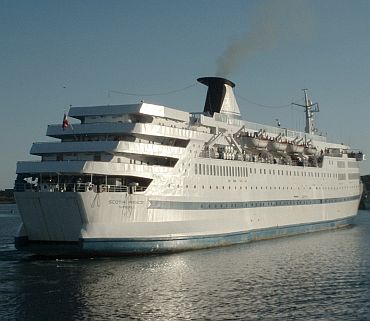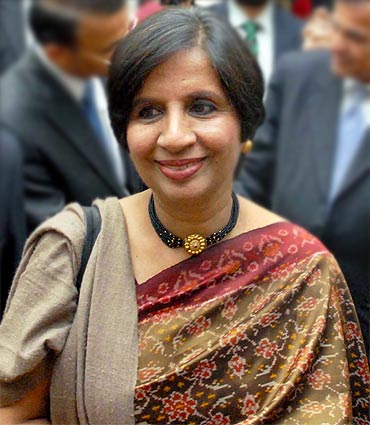 | « Back to article | Print this article |
Indian diplomacy's new age avatar
Every day, hundreds of Indians are flying back via the national carrier Air India and on chartered flights from Tripoli and other locations connected by air bridges in the Middle East. The Scotia Prince, a chartered ship, has evacuated 1,188 Indians. An additional ship will reach Misurata, in Libya, to bring home Indians. All this is being watched on television and the Internet with great appreciation.
The Twitter accounts of the Indian Foreign Secretary (Nirupama Rao) and the Public Diplomacy Division of the Ministry of External Affairs are abuzz with details of the evacuation process.
Foreign Secretary Rao takes in questions and suggestions and interacts with people who want to give her information about family members stranded in some locations in Libya. If there is any real time example of how social media should be and is being used to perfection in disaster management, one has only to see these interactions.
'The evacuation was all covered free of cost'
@ashmoily to @ForSecNRao: Indians in Brega need help!! Is anyone listening?? They have no help from the Embassy yet!
@ForSecNRao to @ashmoily: Could you please give me a contact number for any of our people in Brega? We want to help.
@ashmoily to @ForSecNRao: You could contact Mr.Melanta:00218-XXXXXXX & Mr.Gowda:00218-XXXXXXX. They are employees of Sirte Oil Company.
@ericvmarsh to @IndianDiplomacy: My family''s million thanks to the entire MEA team.... my sister-in-law has reached home safely: Marcel, KSA
@vharshan to @ForSecNRao: There are about 800 Indians in Misurata. Lisco has a private port handling.
And so on. The foreign secretary passed on the information to the government cell handling rescue and relief operations. Logistics were worked out to help these Indians reach the nearest port or airport by road, their papers organized and their evacuation to New Delhi and then, to their home town provided, all free of cost.
Indians feel empowered by social media
The power of the social media is immense, and at least one arm of the government has utilised this tool beneficially, not just for projecting itself, but also for seeking out and helping people in dire need.
Using Twitter and Facebook communities for interaction with the people, they are there to serve. This is an absolute necessity for government communicators.
For example, Air India is the only carrier that flew to Libya, none of the private players did. What were the logistics involved? How much did it cost Air India? And, the fact that they did not charge Indians was a story that they could have tweeted or put on a Facebook page by the national carrier, seeing how desperately they need good will.India's efforts have matched the European and the Chinese
These days when 'Operation Homecoming' is on, Pakistanis and Bangladeshis on Twitter have been tweeting their admiration for the manner in which India has rescued its people from Libya and Egypt. The Indian effort has been compared to China's and some European countries' operations. Nobody compared it to Pakistan's late and feeble response.
The integration of social media and diplomacy is thriving in India with the ministry's presence on Facebook, Twitter and Youtube. The external publicity division emails and texts urgent information without waiting for the evening briefing, sometimes even past midnight.
There is a digital convergence of information, and it is prompt. This is something new and new-age Indians are appreciative of the change. There are some non-believers in the government and traditional media who are still apprehensive of the perceived frivolousness of new media. All they need to do is to speak to their children and, or grand children to know how outdated their ideas are.



